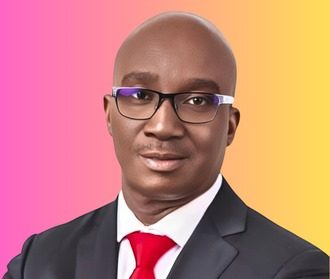The political landscape in Nigeria, particularly in Adamawa State, is currently imbued with tension as the All Progressive Congress (APC) asserts that the recent governorship election in Edo State signifies a boost for President Bola Tinubu’s 2027 re-election campaign. The Chairman of the Adamawa APC, Idris Shuaibu, emphasized that the victory of the party’s candidate in Edo highlights the effectiveness of the President’s policies. Shuaibu expressed that the success derived from programs aimed at human development, such as student loans, local government autonomy, and the creation of a livestock ministry, has resonated with the electorate. These initiatives, he argues, demonstrate that Nigeria is progressing toward significant development under Tinubu’s leadership.
In his remarks, Shuaibu praised the Edo governorship election held on September 21, 2023, describing it as one of the fairest elections conducted by the Independent National Electoral Commission (INEC) in recent years. He believes that the electoral process is a testament to the government’s commitment to strengthening democracy in Nigeria, further echoing the sentiment that Tinubu’s governance policies are conducive to a robust democratic landscape. Shuaibu expressed confidence that the meticulous organization of security forces during the election by National Security Adviser Nuhu Ribadu reflects the administrative competence Tinubu has brought to his cabinet.
Shuaibu’s optimism extended beyond the Edo State elections; he predicted a seamless victory for the APC in the upcoming Ondo State governorship election and claimed that Adamawa State would return to APC governance in the 2027 elections. He believes the current administration has provided a clear path for development that will ensure the party’s return to power in his state, positioning it to reclaim what he described as a “stolen mandate.” His conviction about the APC’s prospects in Adamawa is couched in the belief that the President has demonstrated what he sees as the right approach for advancing Nigerian society.
In stark contrast, the Adamawa Peoples Democratic Party (PDP) has vehemently denounced the outcomes of the Edo governorship election, branding it a “daylight political robbery.” The PDP Chairman Abubakar Shehu claimed that their candidate won the most legitimate votes during the election, which he alleges has been wrongly subverted by the actions of the APC. Shehu’s statements reflect a belief that the APC, in its desperation to secure a victory, engaged in manipulative tactics that undermined the electoral process and thwarted the true will of the people of Edo State.
During a press conference in Yola, Shehu articulated his party’s belief that the supposed malpractices during the Edo elections were not isolated; instead, they were facilitated by the complicity of INEC and security officials. He characterized the supposed electoral manipulation as a direct threat to Nigeria’s democracy and urged that such acts would only deepen voter apathy among the populace. His comments underscore a serious concern with respect to the integrity of the electoral process and the potential for increased disenchantment among voters, which could have long-lasting ramifications for democratic practices in the country.
The confrontational rhetoric between the two parties reflects a broader struggle over public perception and political legitimacy in Nigeria’s complex electoral environment. With the APC claiming a mandate to govern based on what it portrays as successful governance and necessary reforms, and the PDP contesting the fairness of electoral processes, the confrontation is indicative of deeper political divisions that could resonate into future elections. Both parties navigating the aftermath of the Edo gubernatorial election reveal the charged atmosphere as Nigeria gears up for its political future, especially with a looming presidential re-election in 2027, amplifying the stakes for both sides in their quest for lasting influence and credibility among the electorate.














